Protecting and restoring Ann Arbor's natural areas and fostering an environmental ethic within the community.
Dana Novak, NAP Outreach Assistant and Adopt-A-Median Coordinator
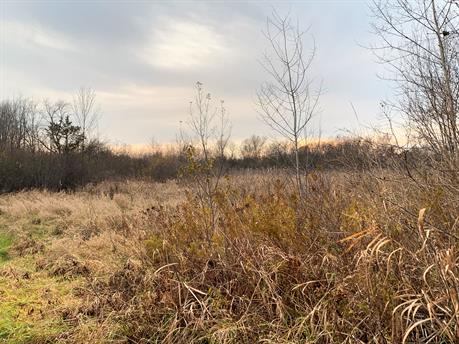
For myself, and many NAPpers before me, Scarlett Mitchell and Park Stewards Judy and Manfred Schmidt go hand-in-hand. As far back as September 28, 1972, Manfred was quoted telling City Council in an Ann Arbor News Article: “We cannot carve this up and expect it to be as rich. It is an ecosystem and we need to preserve the whole thing."
Just seven years earlier, in 1965, the Schmidts purchased their membership at Colonial Square Co-operative just to the north of Scarlett Mitchell when that housing development was under construction. The two have lived there ever since, and have been instrumental in preserving, maintaining, and championing the natural area for the last 55 years. “It's kind of our life's work," said Judy, “we had no idea at the time and would have been daunted" knowing how long and how much effort it would take to secure all three parcels of land for public use. We are so grateful for their efforts.
Now at 91 years young, Manfred admits, “I love these woods; it keeps me going." Most weeks, you can still find him out cutting buckthorn, working on trails or other projects, and having adventures in the woods. Judy, now 81, particularly likes to check out the trails and keep an eye on relatively remote areas of the park.
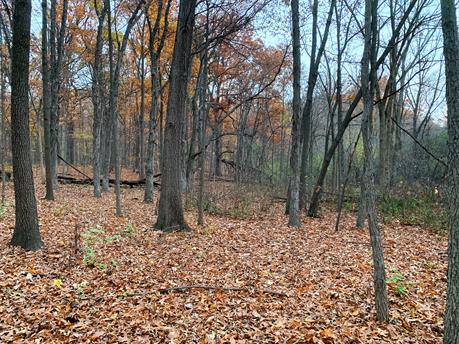 There were moist eyes all around when recalling the day in 1998 when the Michigan Natural Resources Trust Fund awarded the grant for purchase of the final piece of property to the west of the park. “I cried when I heard it" said Manfred.
There were moist eyes all around when recalling the day in 1998 when the Michigan Natural Resources Trust Fund awarded the grant for purchase of the final piece of property to the west of the park. “I cried when I heard it" said Manfred.
Interestingly, Scarlett Mitchell Nature Area comprises only two of the parcels that Judy was talking about. The eastern and western parcels are owned by the City, and total just over 49 acres. The third parcel – which happens to be sandwiched between the other two – is 40 acres owned by Ann Arbor Public Schools (this middle parcel is known as Mitchell-Scarlett Woods, or Mitchell Woods for short). The entire combined natural area is bounded by US-23 to the east and Ellsworth Rd and I-94 to the south. It is an area worthy of exploration whether you want a to sit and enjoy the surroundings or have a large area to recreate.
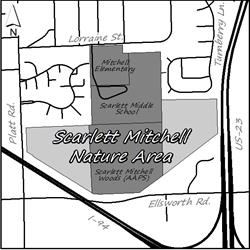 Following the relatively well-marked trails from the eastern entrance off Turnberry Lane to the western entrance on Platt Road is about one mile each way. There are many options to add more distance by taking side trails and loops. One way to access Scarlett Mitchell Nature Area is by taking Turnberry Lane south from Packard St. to approximately 3390 Turnberry Lane. There is a park sign and sidewalk that lead southward into a trail here. There is also a trail off Platt Road but no parking in this area. A third option is to park at Scarlett Middle School and walk toward the woods from the end of the bus loop. You will find a kiosk with information at this entrance, thanks to an Eagle Scout project recently completed by Will Chettleburgh.
Following the relatively well-marked trails from the eastern entrance off Turnberry Lane to the western entrance on Platt Road is about one mile each way. There are many options to add more distance by taking side trails and loops. One way to access Scarlett Mitchell Nature Area is by taking Turnberry Lane south from Packard St. to approximately 3390 Turnberry Lane. There is a park sign and sidewalk that lead southward into a trail here. There is also a trail off Platt Road but no parking in this area. A third option is to park at Scarlett Middle School and walk toward the woods from the end of the bus loop. You will find a kiosk with information at this entrance, thanks to an Eagle Scout project recently completed by Will Chettleburgh.
As you explore, you can see evidence of the history of land use in the area. Along the southern edge, the two-track from Old Ellsworth Rd is still visible and parallels Ellsworth and the forest edge. Aerial photos from the 1940s show farm fields east and south of the large marsh in the eastern section, where American woodcocks used to nest. The western section was comprised of old fields. The mature oak hickory forest in the central portion of the woods still dominates. In springtime you will be rewarded with blooming trout lilies, trillium, and other woodland wildflowers when exploring here. Old fields began to fill in with woody plants over the years, becoming especially obvious during the 1990s as agriculture faded in this area.
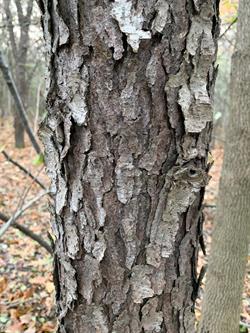
There is now a robust forest of invasive buckthorn, dotted with some medium-sized cherry, oak, and hickory trees. However, management efforts are proving effective. One good sign is the shrinking of the amount of invasive phragmites in the marsh thanks to NAP Crew efforts to tackle this invasive annually for the last 4 to 5 years. Another area where big changes have taken place is in the northeast corner of the western section. Volunteers have been working since 2014 to remove invasive shrubs from the small wetlands. The efforts have really paid off, restoring breeding habitat for spring peepers and other frogs. The view is also dramatically different surrounding the pond in the central portion where volunteers have worked to clear shrubs from the pond edges and build benches for students and other park visitors to enjoy.
Scarlett-Mitchell is a great place for birds, with 140 species recorded. Some uncommon birds nest in the mature woods, such as scarlet tanager and yellow-billed cuckoo. In May 2020 a summer tanager was seen in the woods for several days, which lots of birders got to enjoy. This is a southern species that doesn't nest in Washtenaw County, but occasionally over-migrates and ends up here in spring. The main pond hosts breeding green heron, wood duck, and sometimes sora and Virginia rail. During spring migration you'll find lots of migrating warblers in early to mid-May. Twenty-one species of butterflies have also been recorded in the varied habitats.
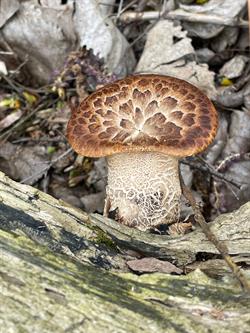
There are many wetlands in the area, two of which support good sedge and wetland wildflower populations and a remarkable diversity of wetland plants. Additional noteworthy plants include three-way and beauty sedge, Ontario aster, poke milkweed, and early buttercup. Chorus frog, American toad, and green frog, along with painted and snapping turtles and garter snakes, also call this park home. A leopard frog was observed for the first time this year by a NAP frog survey volunteer; we hope they are breeding. A northern brown snake was found here for the first time by EMU student volunteers in 2018. It is a harmless, quite small (adults are 12- 18 inches long) snake species that is common in Michigan but hides during the day and eats snails, slugs, and worms.
As park stewards, Manfred and Judy would like others to know that most trails are maintained by volunteers who are not getting paid. So, if you're out walking, please do your part by picking up branches lying across the trail and throwing them to the side, or pick up trash. It will sure make their walks more enjoyable.
Manfred and Judy acknowledge that even if they're still alive in 10 years, they probably won't be able to do all the things they do for the woods today. A next generation of stewards will be needed to continue to add to the rich history of community volunteers and stewardship.
**********
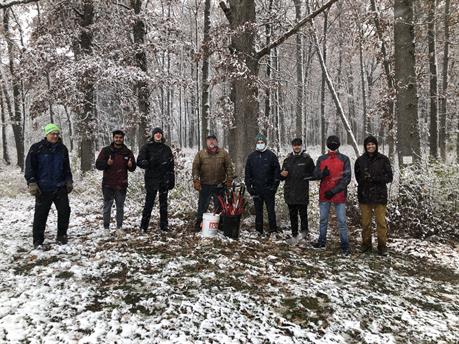
Intrepid volunteers at Black Pond Woods, after cutting honeysuckle shrubs on the first snowy November morning of 2021.
**********
NAPpennings
December Stewards' Circle
Tuesday, December 14, 2021, 5:30 – 6:30 p.m. (Followed by happy hour nearby!), Veterans Memorial Park Meeting Room
Introducing a whole new Stewards Circle! For the last 25 years, the Huron Arbor Cluster of the Stewardship Network has been gathering monthly, and for the past decade the group has met with a local expert to answer your questions; now it's time to flip the script! You are invited to join us at the newly renovated Veterans Memorial Park Meeting Room to share your experiences and learn from your peers. This month's topic: winter restoration. “What types of restoration work have you done in the winter? What are you trying to accomplish before spring? What techniques have you found most useful and fun through the short, cold days?" After the discussion group, join us for a happy hour just up the street at HOMES Brewery to further connect with other land stewards!
Thank you!
Many thanks to the groups who volunteered with NAP recently. We could not make such a difference without you!
Greenhills School
Washtenaw International High School (WIHI) - National Honors Society
Staff Updates
Welcome back...
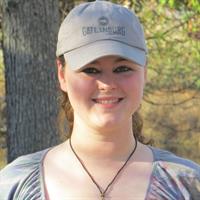 Morgan Boyer
Morgan Boyer
Conservation Worker
Howdy friends, some of you may remember me from the last time I was with NAP, but for those of you who don't, my name is Morgan Boyer and I'm once again a conservation crew member. My background stared with a wildlife biology degree from UM-Flint and dabbles in everything from herpetology and public outreach education to industrial beekeeping and breeding different bio-controls for agricultural crop pests. It is an absolute pleasure to be back doing stewardship work in Ann Arbor's beautiful parks and I can't wait to see some of you during workdays or out in the field. I look forward to seeing you all out in the parks!
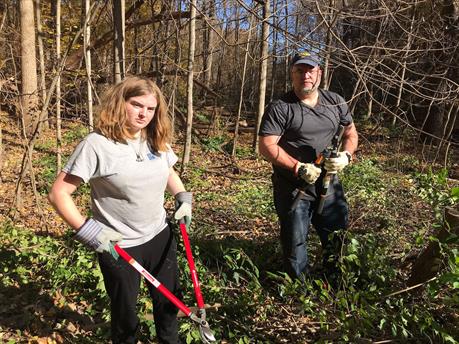
Two of NAP's most dedicated workday volunteers cut honeysuckle shrubs at Barton (these two might end up in a tie for the most workdays attended in 2021).
